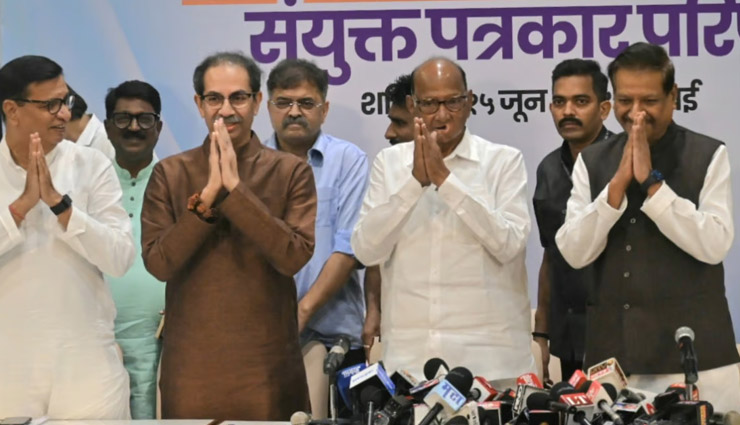Maharashtra Assembly Elections 2024: Will MVA Nominate A Muslim Deputy CM?
By: Sandeep Gupta Mon, 14 Oct 2024 3:41:32

As the countdown to the 2024 Maharashtra Assembly Elections begins, the political landscape is abuzz with intense activity. Parties are meticulously crafting their strategies, focusing on voter demographics and past election patterns. Among the most intriguing developments is the Mahavikas Aghadi (MVA) considering the appointment of a Muslim deputy chief minister—a calculated move aimed at securing the Muslim vote. This demographic has historically shown strong support for the MVA, particularly in constituencies with significant Muslim populations.
The political focus isn't limited to religious or caste-based strategies. Parties are broadening their appeal by introducing policies that target a wider range of voters. Initiatives such as free education for girls and various environmental projects are designed to resonate with diverse voter groups. Additionally, the involvement of Bollywood celebrities and the proposal to honor industrialist Ratan Tata with the Bharat Ratna highlight a blend of policy and star power to capture public attention ahead of the critical elections.
In recent elections, particularly in states like Haryana and Jammu & Kashmir, Muslim voters have consistently backed the Congress. For instance, all Congress MLAs elected in Jammu and Kashmir were from the Muslim community, reflecting the party's strong bond with this demographic. This trend emphasizes the strategic importance of the Muslim vote in Maharashtra, especially after significant turnouts against the Mahayuti alliance in areas like Dhule and parts of Mumbai. These dynamics underline the growing focus on religious and community representation as key elements of political strategy in the run-up to the 2024 elections.
Criticism has emerged from various quarters, notably from BJP leader Amit Malviya, who has labeled the Congress as pandering to Muslim interests, going as far as to compare it to "the new Muslim League." This critique is anchored in the observation that Hindu voters are increasingly leaning towards the BJP, particularly in regions like Jammu, whereas Muslim voters in the Kashmir Valley show a preference for Congress and the National Conference. Such allegations highlight the polarized nature of the electorate, with religious affiliations playing a key role in voter behaviour.
The shift in Hindu voter allegiance, especially those previously in favour of Uddhav Thackeray, towards Eknath Shinde, has sparked a reevaluation within the Mahavikas Aghadi regarding the crucial need to secure Muslim votes. The significance of the Muslim electorate is not lost on Thackeray's party and Sharad Pawar's NCP, both of which have historically enjoyed substantial support from Muslim-majority areas. This strategic importance is further emphasized by demands from some Muslim leaders for more legislative representation, advocating for as many as 40 seats to prevent the community's shift towards parties like the MIM or Vanchit Bahujan Aghadi.
Amidst these strategic recalibrations, controversies have emerged, such as the demand for arresting individuals for actions offensive to Hindu sentiments and opposition to the Waqf Amendment Bill. These issues have stirred the political pot, possibly influencing the Mahavikas Aghadi's approach towards the Muslim community, including the potential appointment of a Muslim deputy chief minister.
In a parallel thread, the NDA government's announcement of development projects worth 7600 crore for Maharashtra alongside tributes to figures like Ratan Tata by leading politicians, including PM Modi and Fadnavis, signify a concerted effort to sway voter sentiment and forge political alliances as the election horizon approaches.
The political chessboard of Maharashtra is thus set with moves and countermoves centered around religious polarization, caste equations, and voter loyalty from past elections. As parties navigate these complex dynamics, the ultimate decision rests in the hands of the electorate, poised to shape the state's political future in the 2024 assembly elections.





